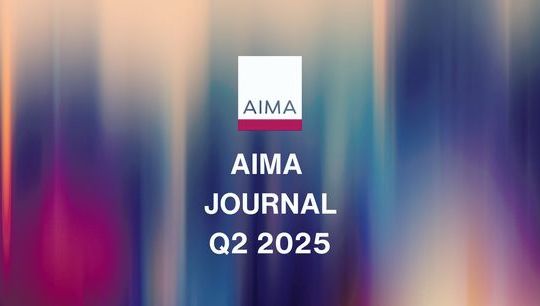CBI publishes final feedback statement on CP86
By Ken Owens, Partner, PwC
Published: 12 July 2017
On December 19th 2016, the Central Bank of Ireland (the “CBI”) published the feedback statement to CP 86 – third consultation. Marking the end of a consultation process which started in September 2014, the CBI also published the finalised guidance for fund management companies on managerial functions, operational issues and procedural matters and also published details of new rules for fund management companies on an effective supervision requirement and on the retrievability of records.
This feedback statement has been long awaited, with the main area of contention being the location rule for directors and designated persons, which the CBI had proposed in their June 2016 third consultation. In this regard the feedback statement brings some welcome relief which will make the location rule much more workable for all concerned.
Location Rule
The finalised rule on effective supervision states that a management company shall conduct a preponderance of its management in the EEA. The CBI then differentiates between management companies based on PRISM rating.
Management companies with a Low PRISM rating which will require at least:
(i) 2 directors resident in the Ireland,
(ii) half of its directors resident in the EEA, and
(iii) half of its managerial functions performed by at least 2 designated persons resident in the EEA.
Whereas management companies with a PRISM impact rating of Medium Low or above shall have at least:
(i) 3 directors resident in the Ireland or, at least, 2 directors resident in Ireland and one designated person resident in Ireland,
(ii) half of its directors resident in the EEA, and
(iii) half of its managerial functions performed by at least 2 designated persons resident in the EEA.
The feedback statement goes into some detail to explain how the CBI has reached this position and is reflective of the level of feedback and engagement which the CBI received from the industry in the consultation period. The feedback statement also explains the CBI’s focus on the EEA from a location perspective which is something which was not evident from the third consultation when it was issued.
One important lesson for all of us from this lengthy process is that strong engagement in the consultation processes with the CBI can, and in this case, has made a difference to the outcome of the process. In the feedback statement the CBI states that the outcome was swayed, to a certain extent, by arguments concerning expertise and the need to facilitate organisational models which draw appropriately on the expertise of the promoter/investment manager.
Transition Period
The other notable point from the feedback statement is that the CBI has provided a transition period of 18 months for existing fund management companies giving them until 1 July 2018 to be in compliance. These new rules relate to the streamlining of managerial functions to 6 managerial functions, the Organisational Effectiveness role, the retrievability of records rule and the effective supervision requirement.
For organisations looking to establish new management companies the CBI has said that it will only approve applications for authorisation submitted on or after 1 July 2017 where the fund management company will be organised in a way which complies with the new rules introduced by CP 86.
The new rules will be included in the amended Central Bank UCITS Regulations and in the forthcoming Central Bank AIF Regulations.
Other Points to Note
Most of the proposals outlined in the third consultation have been retained as follows:
- The CBI has concluded that it is appropriate that where a director is appointed as a Designated Person, he/she should receive two separate letters of appointment – one for the role of director and one for the role of Designated Person.
- The CBI will look to receive a copy of each Designated Person’s letter of appointment to be submitted as part of the fund management company authorisation process.
- The CBI has deleted the proposal which stated that Designated Persons should be employed by the same group of companies where such persons were not going to be working in the same location.
- The draft managerial functions guidance does not prohibit the appointment of an individual as both director and Designated Person.
- The CBI does not consider the appointment of an individual to the role of director and as Designated Person will automatically give rise to a conflict of interest.
- The CBI considers that appointees must be sufficiently senior in their roles to meet these expectations.
- Management companies will be required to have their own documented policies and procedures in each instance with this is required by regulation and will not be able to rely on delegate’s policies and procedures to satisfy this regulatory obligation.
- The CBI is of the view that exception-only reporting does not demonstrate a sufficient level of oversight and engagement by a Designated Person.
- Regular meetings between Designated Persons and delegates should be held to allow Designated Persons properly perform their role.
- Notwithstanding the establishment of any committees, the CBI obliges a Designated Person to be responsible for the performance of his/her managerial function.
- Regarding alternate Designated Persons, Designated Person is classified as a Pre-Approved Control Function in accordance with the CBI’s Fitness and Probity regime.
- There is no ‘alternate Designated Person’ role under that regime. Stakeholders should refer to the Fitness & Probity statutory requirements, standards and regulatory guidance in relation to the appointment of a ‘temporary officer’.
- A management company shall keep all of its records in a way that makes them immediately retrievable in or from Ireland.
- The CBI has clarified its expectations as regards its minimum requirements for record retention, archiving and retrievability of the relevant documents of a fund management company.
- The CBI has reiterated that it places significant importance on proper and adequate recordkeeping and that procedures and processes should be in place which seek to avoid manipulation in so far as is possible.
- The CBI considers that a fund management company, notwithstanding the delegation of activities or the manner in which documentation is stored, must be able to produce records on request from the CBI.
- The CBI expects that fund management companies will subject their record retention policies to an annual audit. This reflects the level of importance which the CBI places on a fund management company’s recordkeeping.
- The CBI has clarified that such an audit may be undertaken by an external party or internally, for example by the internal audit function of the fund management company.
- Annexes I and II of the managerial functions guidance allocate internal audit tasks to the Organisational Effectiveness role. However the CBI goes on to note that the precise allocation of regulatory obligations amongst managerial functions is a matter for each
- fund management company and it may be that, for any particular company, the particular regulatory obligations should be attributed differently.
- The CBI is proceeding with the requirement that fund management companies should maintain a dedicated and monitored email address.
A post Brexit roadmap for management company substance
Coming just 3 weeks after the CBI issued its third consultation on fund management company effectiveness, the UK’s decision to leave the EU featured in many of the responses received by the CBI. A number of respondents raised the issue of how the proposed exit of the UK from the EU would affect the CBI’s approach.
As regards the CBI's perspective on the UK's position post Brexit, the CBI gave a nuanced response saying that in formulating their feedback statement and the final rules "we have been cognisant of this aspect". The feedback statement goes on to say that, as subsequent arrangements for the UK post Brexit remain the subject of major negotiations, it is was not possible for the CBI to predict the outcome of those negotiations. Interestingly the CBI then states that they have set out in some detail the factors which are relevant to their assessment of the extent to which an authorised entity can be considered to be subject to effective supervision (feedback statement page 12 paragraph c) and that these factors should allow interested parties to assess the likely impact, if any, of different forms of Brexit on the application of the CBI's rules.
Now that the rules and guidance for management companies have been finalised, managers and promoters have the ability to confidently plan for the implications of Brexit with a clear roadmap from the CBI of their substance requirements for Irish UCITS management companies and AIFMs.
To contact the author:
Ken Owens, Partner, PwC: [email protected]








